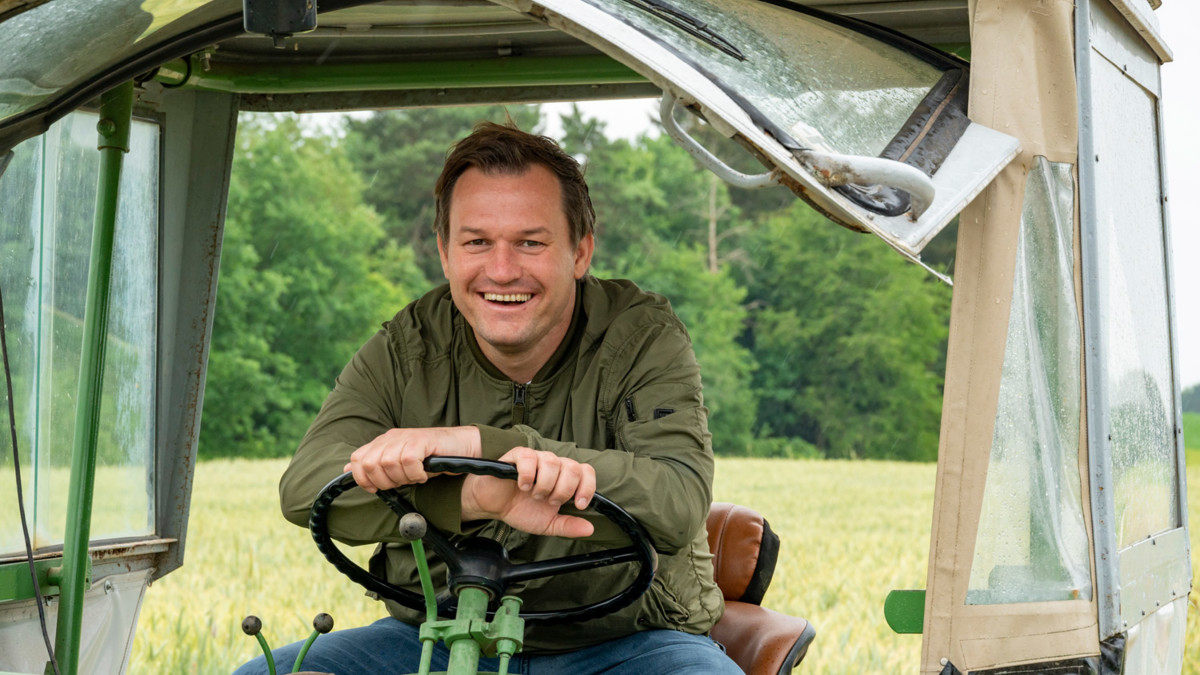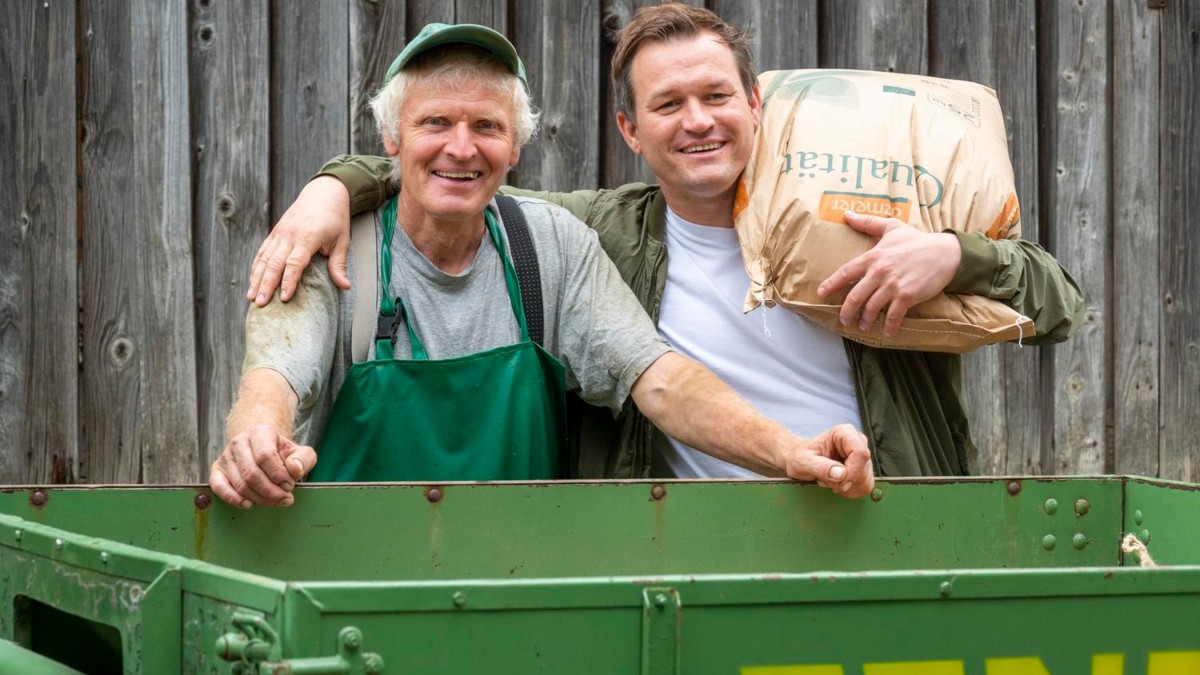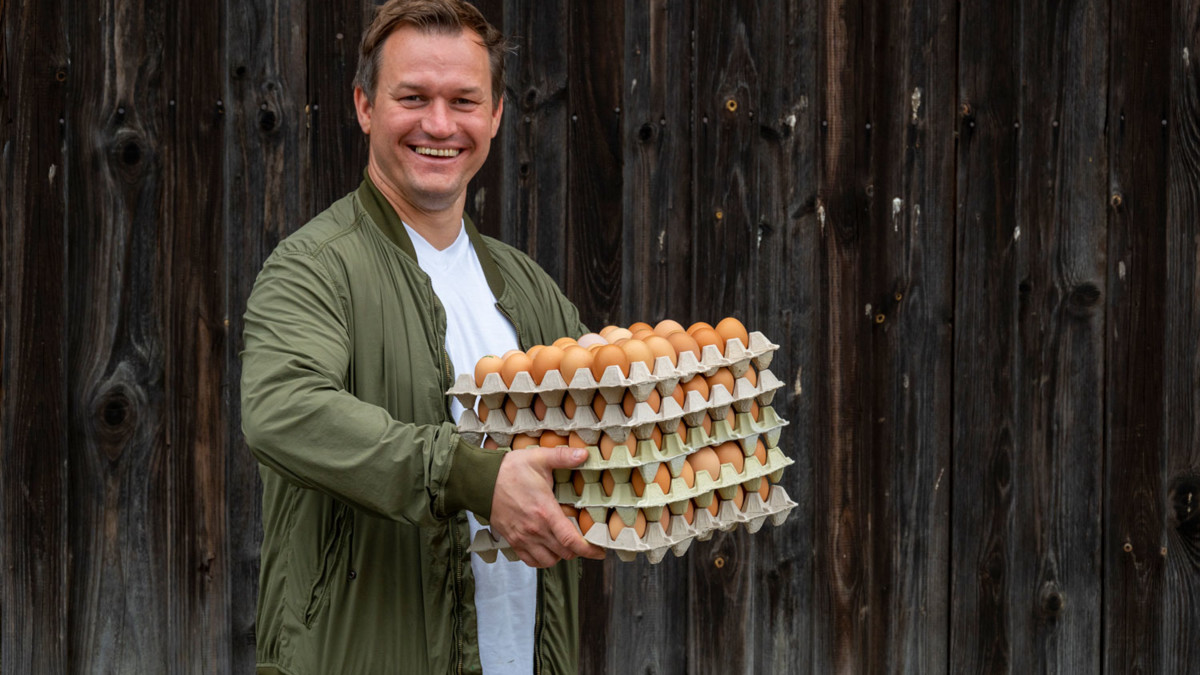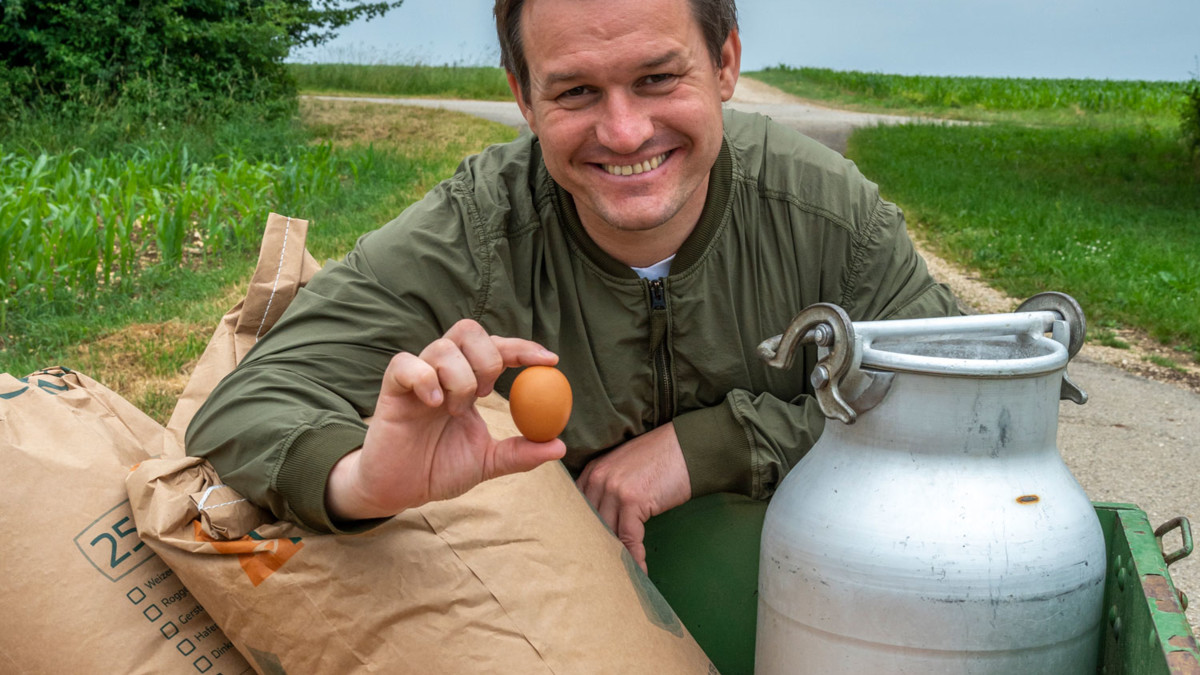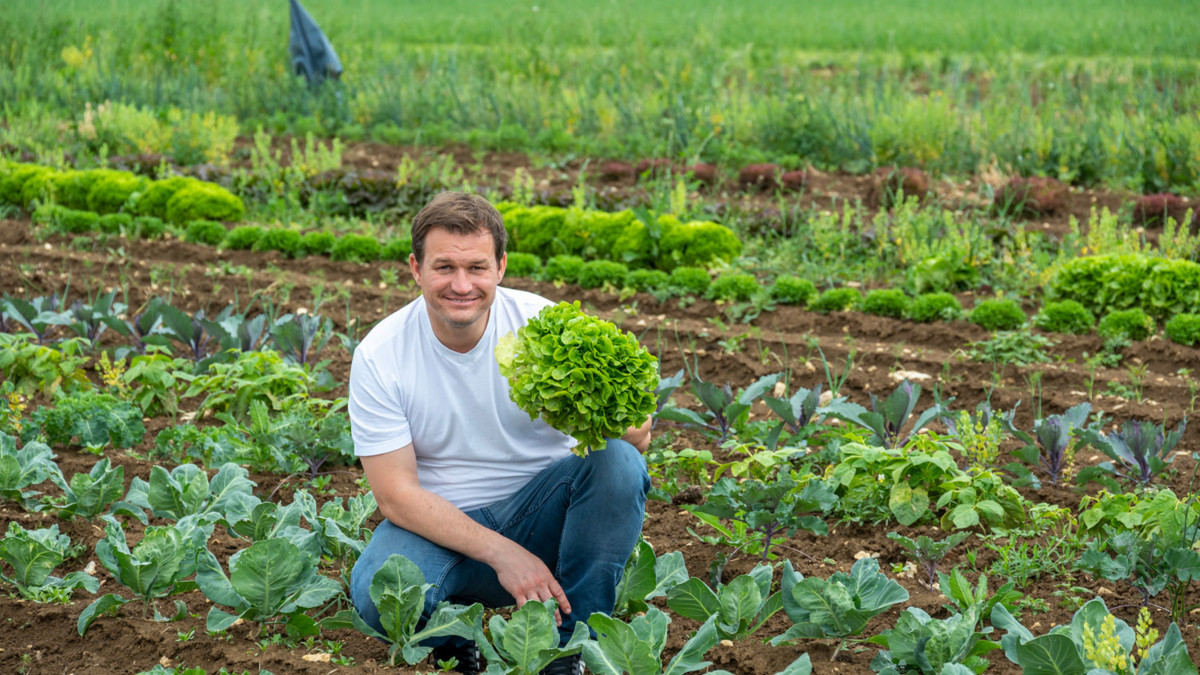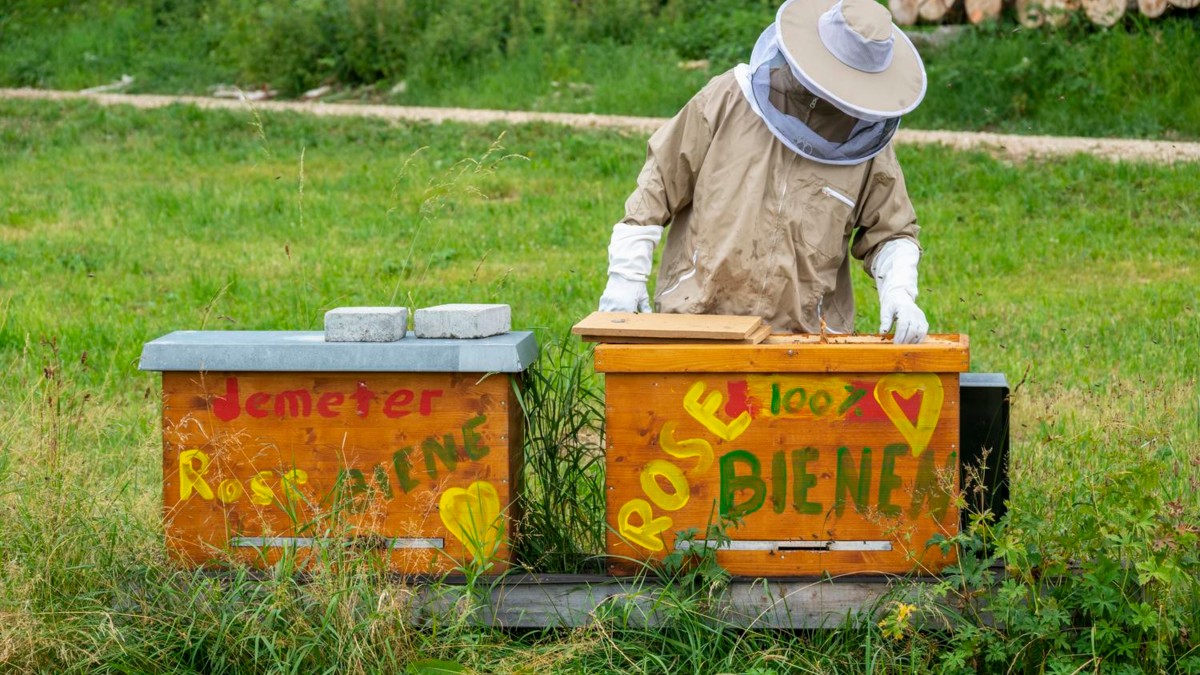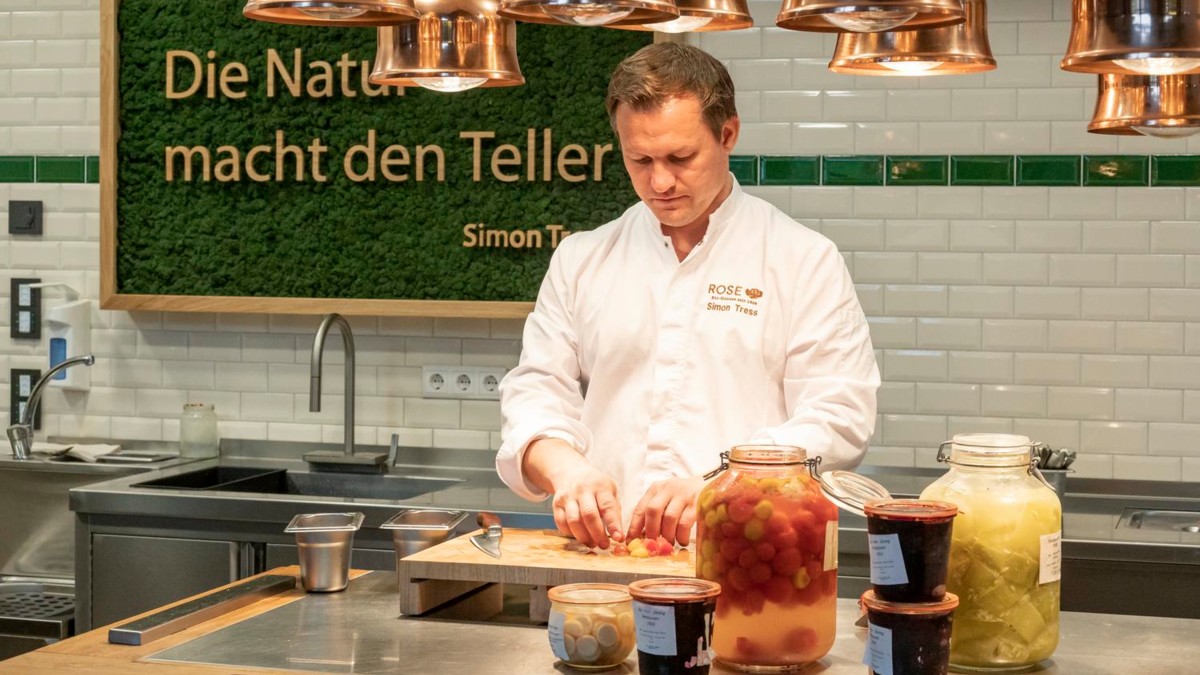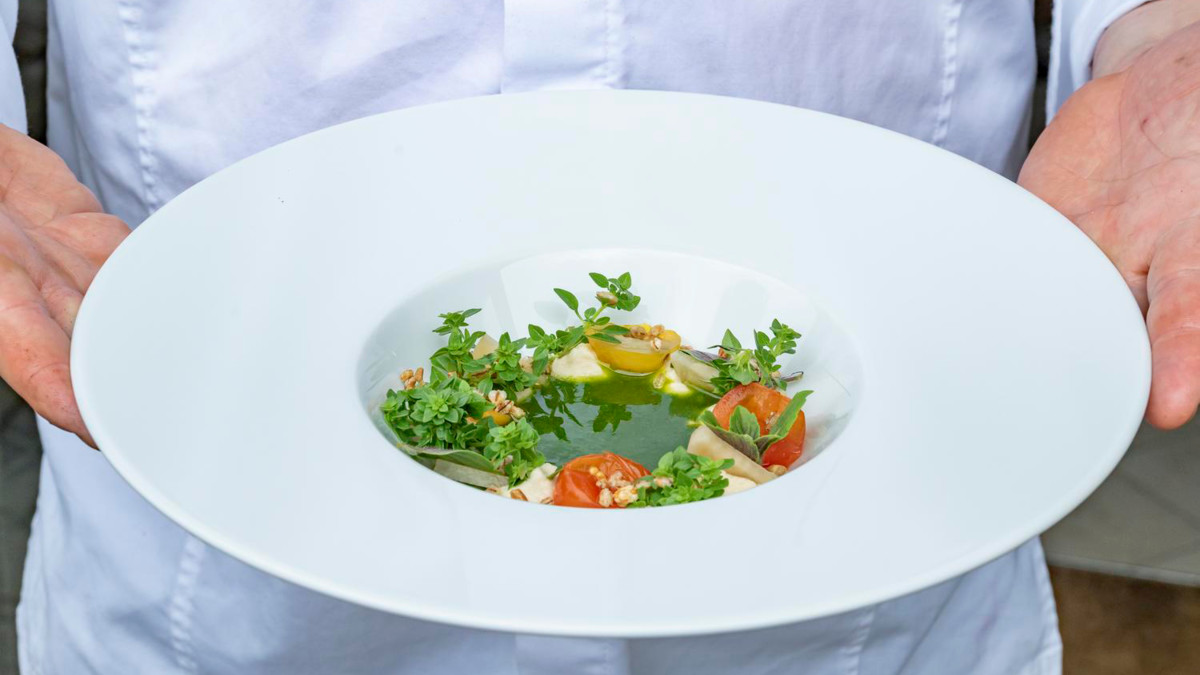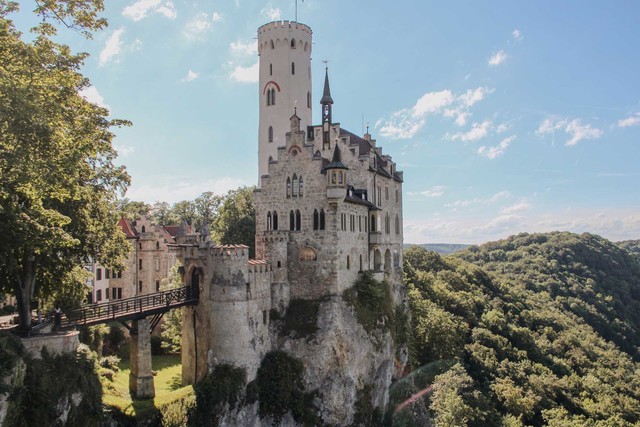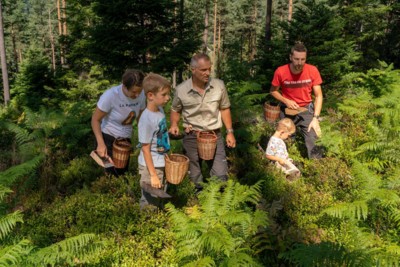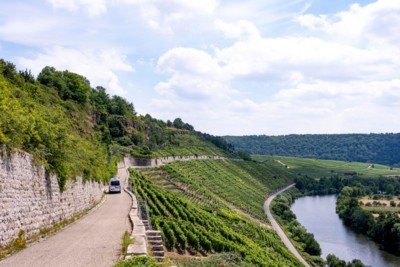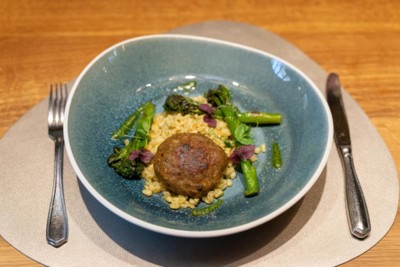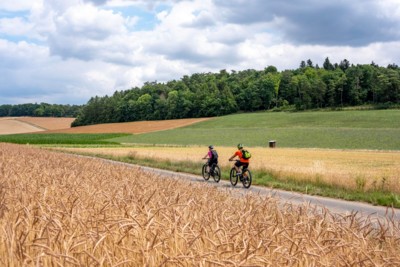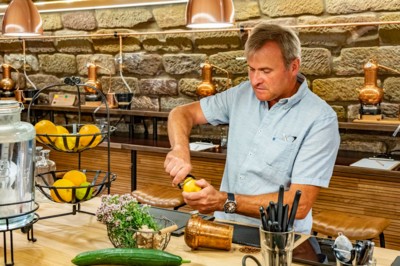Restaurant '1950'
Green Haute Cuisine
© TMBW, Udo Bernhart
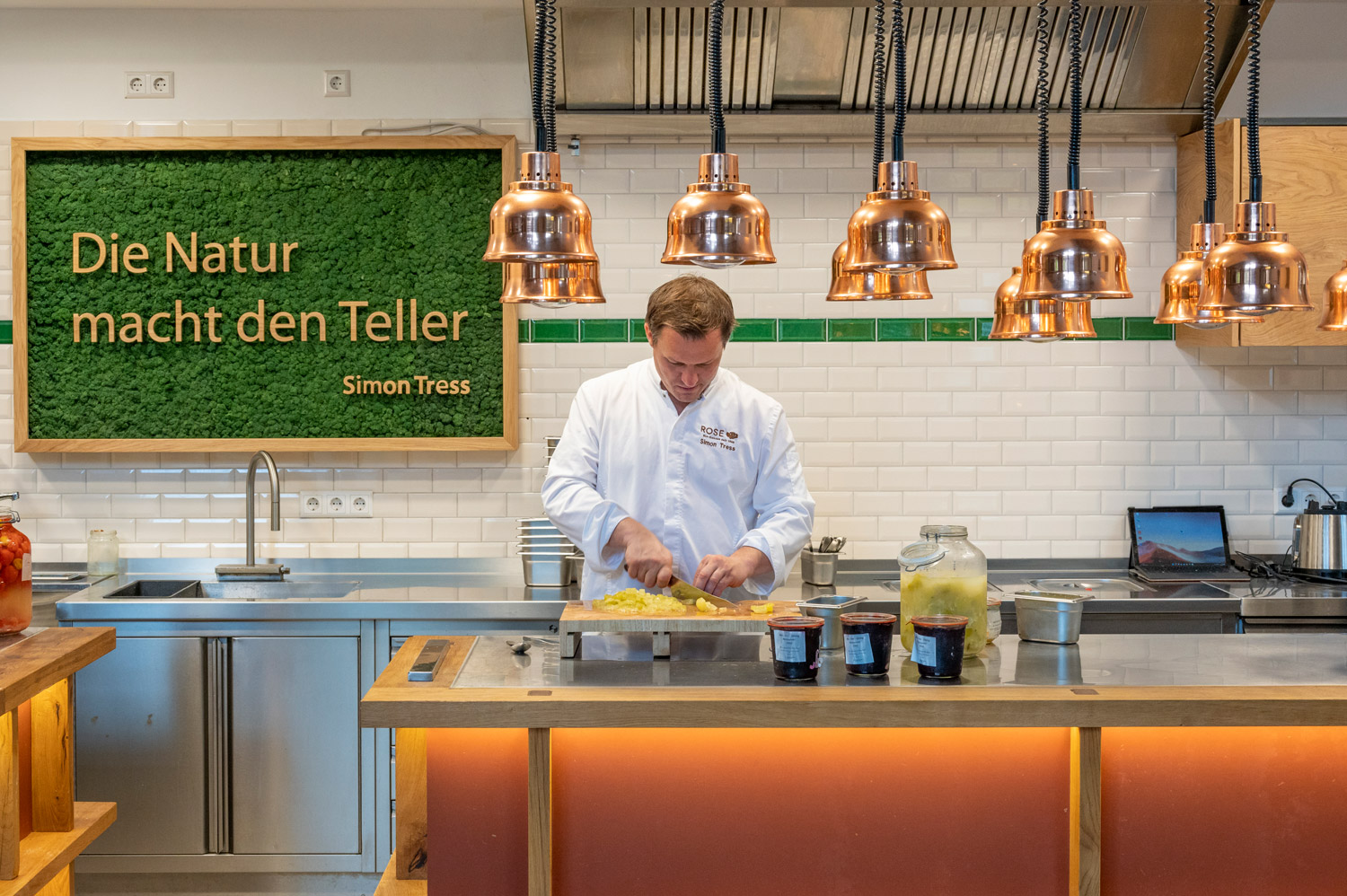

BW Story
Nature on the plate
Simon Tress leads the way: organic isn’t just good for the environment, it also promises a gourmet delight. Chef Simon Tress is preparing his CO2 menu at “1950”, his organic fine dining restaurant in Hayingen.
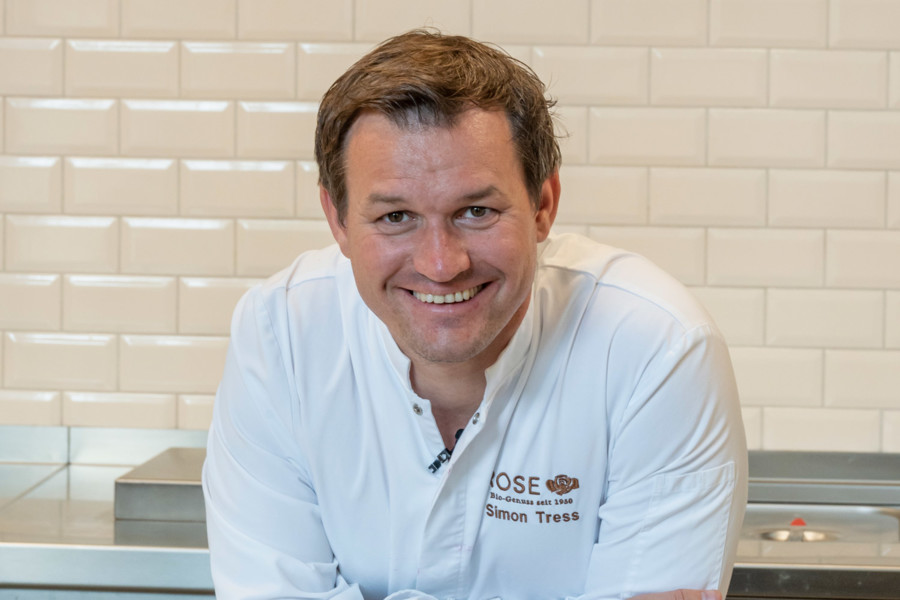
Simon Tress is the chef de cuisine at the organic fine dining restaurant '1950' in Hayingen in the Swabian Alb. |© TMBW, Udo Bernhart
| © TMBW, Udo BernhartHerbs and spring onions sprout from the ground, and tomatoes ripen on the bushes in the greenhouse. Simon Tress plucks some mint, crushes the leaves, then tastes them. “You can taste that it’s organic!” he says, happily.
Simon is chef de cuisine at the organic fine dining restaurant 1950 in Hayingen in the Swabian Alb. The qualified chef opened the restaurant in 2020; it’s the first Demeter & Bioland fine dining restaurant in the world, and where Simon offers creative vegetarian cuisine. Tress’s concept of cuisine follows the philosophy of his family business.
His grandfather Johannes converted his agriculture to Demeter (biodynamic) cultivation – in 1950, and, at the parent company, the organic restaurant and hotel Rose, meat has always been served as a side dish, if at all. “This is how we want to make our contribution to climate action and sustainability of nature and wildlife”, says the chef, who, together with his three brothers, helped out in the fields or in the restaurant even as a child.
That Simon Tress has continued the family business was not at all a foregone conclusion. After several stints in top restaurants, including the five-star Traube Tonbach in Baiersbronn, he moved away from home, firstly to Berlin and Hamburg, then to Brazil and India. He’s even played football with the German top chefs’ football team on other continents. Yet: “All good things come to an end”. Simon Tress wanted to assume responsibility and create something of value with his family. By now, all four brothers are firmly established in the family business, which includes the organic Rose Hotel, the organic guest house Friedrichshöhle in Hayingen-Wimsen and the Heimatküche Restaurant in Bechingen. Alongside classic Swabian cuisine, such as lentils, home-made spaetzle and Maultaschen dumplings, the guesthouse and Heimatküche Restaurant also serve organic vegan and vegetarian meals. What’s more, the brothers have also been producing the organic soup brand “TressBrüder” since 2010, which they originally made in a small kitchen beside the restaurant.
 Shopping by tractor
Shopping by tractor
regional organic producers
Shopping by tractor
Simon Tress shoulders sacks full of spelt grains and flour, fetches pallets of eggs from the farm shop and fills cans with fresh milk. “We would never be able to make our concept a reality without our producers”, the chef says. He personally drives to the surrounding farms, to collect his goods from the producers as often as he can. Simon particularly likes to go by tractor, the same tractor his father drove, which is as green as the summer landscape that he chugs past.
Only products grown in the immediate vicinity of the region end up on his plates: they must not cover more than 25 kilometres from field to restaurant. The chef even sources spices from the region, making an exception for salt and organic wines only. Simon Tress describes his approach as “brutally regional”, which also applies to his own organic farming. The farm’s greenhouse stands next to the restaurant. On a hill just outside the village, there is a three-hectare field, where pale green lettuces are growing. He even extracts his own honey – the amateur beekeeper has his bee colonies at the edge of the forest, right beside his field. On warm days like today, the bees leave their hives and fly, buzzing, over the flourishing landscape of the Swabian Alb.
Open kitchen and transparency of products
A cook to watch
Nimble fingers halve smoked beetroot, fish pickled gherkins and tomatoes out of large Mason jars and chop vegetables into tiny dice. Simon Tress pickles produce so that it keeps for longer, meaning he can sometimes serve up vegetables that aren’t currently in season. “Just like my grandparents used to do”, says the chef. Behind him, his motto is resplendent in gold letters: “Nature makes the dish”. Fortunately, pickled foods are not only sustainable and healthy – they are rich in good bacteria – and taste good too, like the pickled gherkin ice-cream that he’s making with the vegetables for tomorrow. Which is when Simon Tress is expecting guests who wish to try his CO2 menu. Little cards will be placed on the guests’ tables. They show the people and companies located in the area who supply the chef with their organic products. Simon Tress insists on transparency with the menu too: “These tell our guests what ingredients are in every dish, where they come from, how many kilometres they covered to get here and what the carbon footprint is”.
The organic fine dining restaurant only has twelve seats available, and guests need to book the CO2 menu in advance. An informal atmosphere is created on these evenings, partly because Simon Tress cooks in his open kitchen with the guests looking on. “I don’t like being alone in the kitchen. I like the hustle and bustle and direct contact with people”. But sometimes Simon Tress is very private. For example, when he and his son go to visit the bees and the field, as they do every day. Perhaps he is already sowing the seed for the next generation.
 ☀ Culinary in the Swabian Alb
☀ Culinary in the Swabian Alb
More Information
☀ Culinary in the Swabian Alb
Want to Browse More
You Might Also Be Interested In

